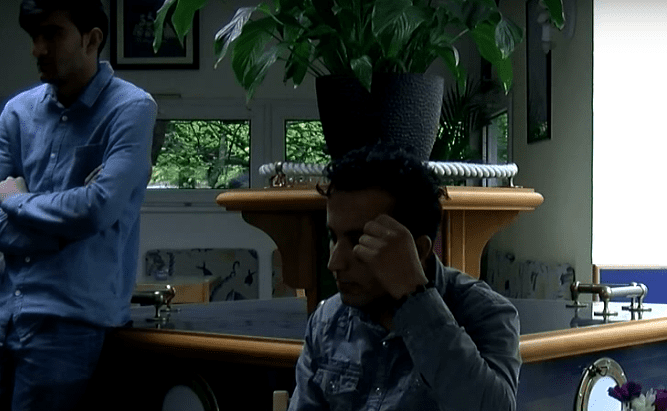Her rich French accent bringing additional emphasis to the depth of her feelings, Commissioner Gisèle Gowans re-lived years of World War II life in France during the German occupation.
“We owe so much to our pioneers,” she said to the members of the Crestmont seminar on the Army’s heritage. “As I grow older I have come to realize how many good people sacrificed so much.”
Gowans’ parents were stationed at a children’s home located in a large house in Paris. “As the German Army grew closer plans were developed for the evacuation of the Territorial Headquarters in Brittany. British Red Shield Officers brought supplies to us just before they were required to leave. The air was filled with fear as the guns could be heard bombarding closer and closer.”
“Then, one day it was silent, and not too long afterwards, German officers walked through the gate in the front wall and up to our front door. My mother responded in full uniform. They said they were looking for a large house to be used for a headquarters. Before they left, they requisitioned the house. It’s a beautiful house and is still a children’s home today.
“In the occupation and under the rule of the puppet Vichy government, The Salvation Army was dissolved in 1942 and went underground. There were no uniforms, no meetings, no open-air services. I remember one older woman officer saying: ‘I still went door to door – collecting and witnessing.’
“It made us stronger. The Protestant Reformed Church adopted the Army and gave identity cards to the officers. We worshipped with them, but outside, we never knew what would happen next.
“We worked to help the Jews. Many hid Jewish families in their attics, and the nation of Israel has honored many Army officers for their heroism during the war. One day a circus was performing and my friend Toby, a Jew, went – Toby with the curly hair – never came back.
“There were many heroes. Commissioner Frank Barrett, the territorial commander – a British officer – refused to leave his post and was taken away to a concentration camp. What courage I saw over and over again. Much of the daily necessities of live were fulfilled by imitations – wooden soles on shoes – anything to bring taste to food.
“Two officers were discovered violating some German rule and were made prisoners of war. Jean Bordas later become a Colonel, and Gilbert Abadie a Commissioner. Major George Flandre joined the resistance and became an important leader. Towards the end o the war he was betrayed at Montcalm, captured, imprisoned, and branded with the cross of Lorraine – Jesus’ cross. Many Christians died.
“Then, one day, the news of American and British forces landing on the beaches spread through the city. There was much excitement, and a short while later, they marched through Paris. The Armee de Salut reopened. There was great joy as the Army rose from the darkness.
“Commissioner Wycliff Booth was appointed Territorial Commander. I remember as a youth, he mounted great pagents in a 6,000 seat theater with the youth of the Torchbearers.
“I am moved when commemorating the dead, for many in the Army accomplished great deeds through the power of Jesus Christ.
“One day, years later, as I was standing on a platform in the Paris underground, a man looked at me and said: ‘I know who you are – you saved my life. In prison I was cold and in tatters – filthy and exhausted, and one of your Captains helped bathe me in what little water we could find. Then – he gave me his only shirt. Thank you,’ the man said, his eyes filled with tears.











